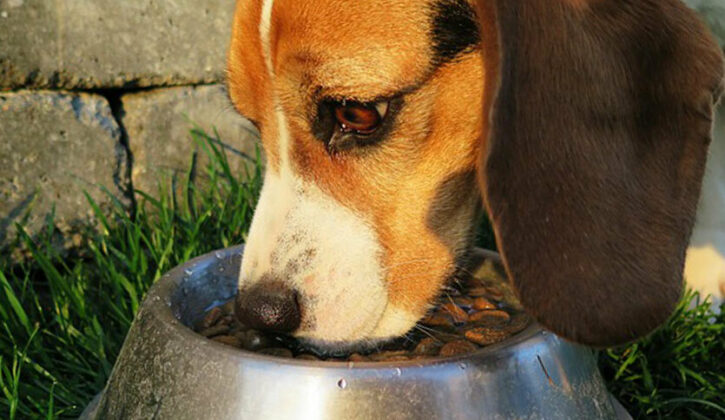Is Grain-Free Pet Food Safe?

What the recent FDA study on grain-free pet food means for your pet.
- 3 mins.
- Posted by Stand For Animals Staff
- Veterinary Care
If you read the news, you might have noticed grain-free pet food in the headlines. In late June, the Food and Drug Administration released a study that investigated the potential link between certain diets and canine dilated cardiomyopathy. We're here to break down what the study means for your pet and what you should do.
What is grain-free food?
As the name implies, grain-free food purposely excludes grains such as barley, buckwheat, corn, oats, etc. Often times these grains are replaced with peas, potatoes and chickpeas. While going grain-free is a popular for humans, it turns out that removing grains from a pet's diet can have negative consequences.
What does the FDA study say?
The FDA evaluated mostly dry grain-free dog and cat food, but semi-wet, wet and raw grain-free diet are also investigated. Grains contain important amino acids, such as Taurine, that dogs and cats need to have a healthy heart. By excluding grains in food, dogs and cats eating a grain-free diet can develop a Taurine deficiency which contributes to the development of heart disease. The study looks at 16 pet food brands that have been connected with 524 reported cases (515 dogs and nine cats) of heart disease. Of those 524 cases, 119 dogs and five cats have died from the disease.
What grain-free brands are linked to heart disease?
- Acana
- Zignature
- Taste of the Wild
- 4Health
- Earthborn Holistic
- Blue Buffalo
- Nature's Domain
- Fromm
- Merrick
- California Natural
- Natural Balance
- Orijen
- Nature's Variety
- NutriSource
- Nutro
- Rachael Ray Nutrish
What should you do if you've been feeding only grain-free food?
Don't panic. At this time, the FDA does not recommend switching your pets off their grain-free food. Unless your pet is in the final stages of heart disease, it can be difficult to tell if your pet is in the early stages or is at risk for developing heart disease.
If you are worried about your pet, you should contact a larger veterinary practice and ask for a blood test that tests for enzymes in your pet's heart and blood. This test will reveal if your dog or cat is at risk for developing heart disease.
Since this isn't a common test, we don't offer it at Stand For Animals. If you want to get your pet tested but aren't sure where to go, we are happy to refer you out to a local Charlotte veterinary practice that can help you.
What foods are safe to give my pet?
Major pet food companies employ veterinarians to help formulate their foods. These brands are not implicated by the FDA because they internally conducted studies on their food before releasing it to the public. to make sure they are including what your pet needs for overall health such as heart, GI, skin, etc.
The following brands are safe to give your pet (in no particular order):
- Hill's Pet Nutrition
- Purina
- Royal Canin
- Iams
- Eukanuba
The final word
While at first glance, this research may seem scary, the truth is: It's great news. Because the FDA scientists conducted this study relatively early into the presence of grain-free pet food's availability in the marketplace, veterinarians are better informed regarding the consequences of this diet and pet owners can now make educated decisions about the best food their pet.
If you want to read the direct report from the FDA, click here.
Watch the video
We host weekly live videos on YouTube called The Fix. Check out our segment on grain-free pet food:


